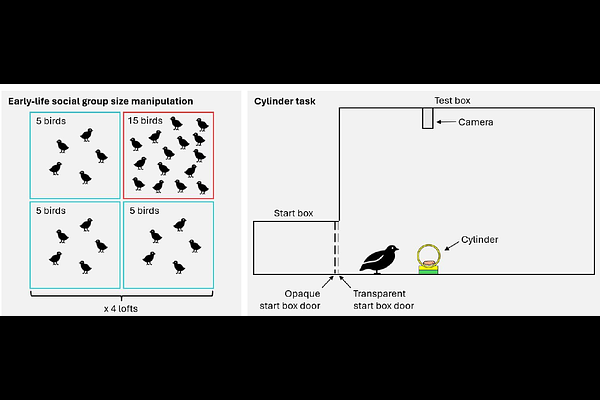Early-Life Group Size Does Not Influence Japanese Quails' Learning in a Response Inhibition Task

Early-Life Group Size Does Not Influence Japanese Quails' Learning in a Response Inhibition Task
Willcox, K.; Vernouillet, A.; Lens, L.; Verbruggen, F.
AbstractIn complex social environments, animals benefit from suppressing inappropriate responses (known as Response Inhibition - RI) to avoid conflicts and maintain group cohesion. Recent research suggests that an individual\'s early-life social environment can shape their RI. However, these findings have mostly been correlational, and results vary across species. Furthermore, the role of learning is often overlooked when measuring RI, despite its potential importance to understanding group differences. We investigated the effect of early-life group size, a key determinant of social complexity, on RI in Japanese quails (Coturnix japonica), whilst taking the role of learning into account. Quails (n = 120) were raised in either small groups of five or large groups of 15 individuals. RI was assessed using the cylinder task. Up to 10 trials were administered to assess whether the birds\' responses changed with increasing experience of the task. Among the quails that completed 10 trials, we found that those raised in large groups consistently spent less time pecking the cylinder than those raised in small groups. The quails\' responses were also influenced by their body condition, food motivation, and sex. Importantly, the quails learned to inhibit their responses - successful trials increased, and time spent pecking the cylinder decreased, across 10 trials. However, learning rates did not differ between the treatment groups. These findings suggest that early-life social group size promotes the development of RI in quails, but not their learning during the cylinder task.